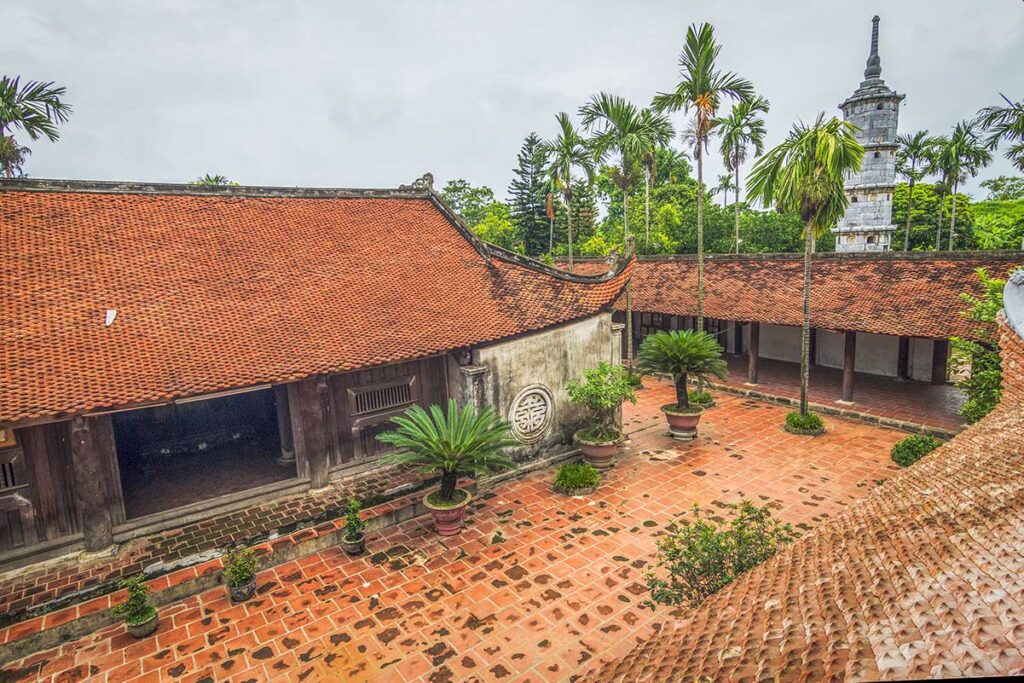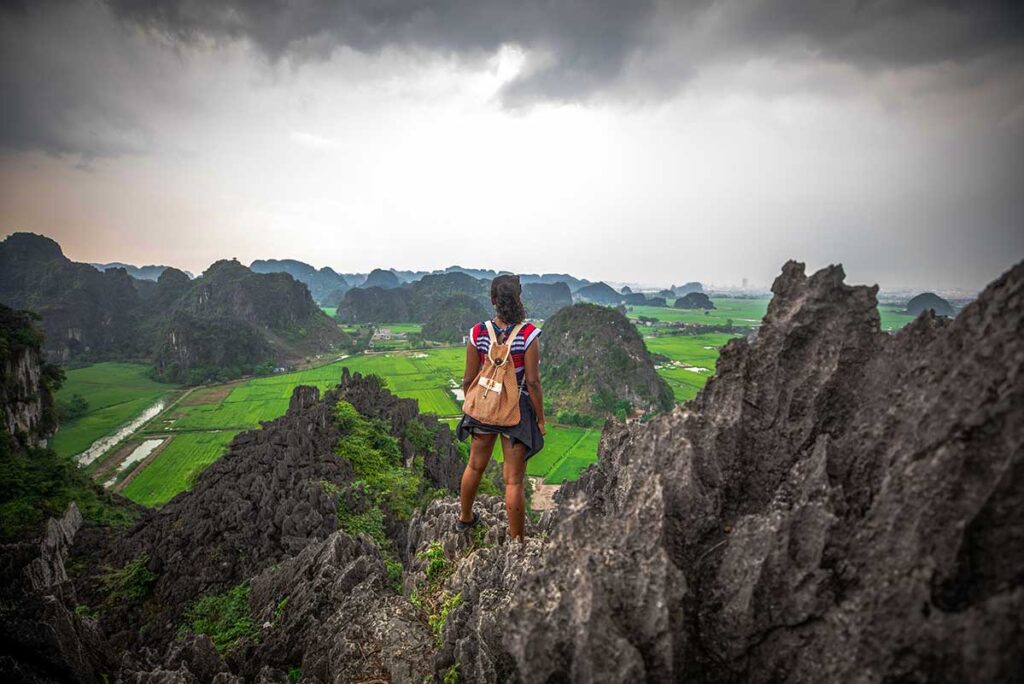What is But Thap Pagoda like?
But Thap Pagoda is a quiet and atmospheric temple complex set in the countryside of Bac Ninh Province, just east of Hanoi. Located near the banks of the Duong River, it is best known for its 17th-century architecture, intricate wooden sculptures, and remarkably preserved layout. While still respected as a spiritual site, the pagoda today feels more like a living museum of Buddhist art and history than a place of active worship—making it an ideal stop for those seeking a peaceful, cultural escape from the city.
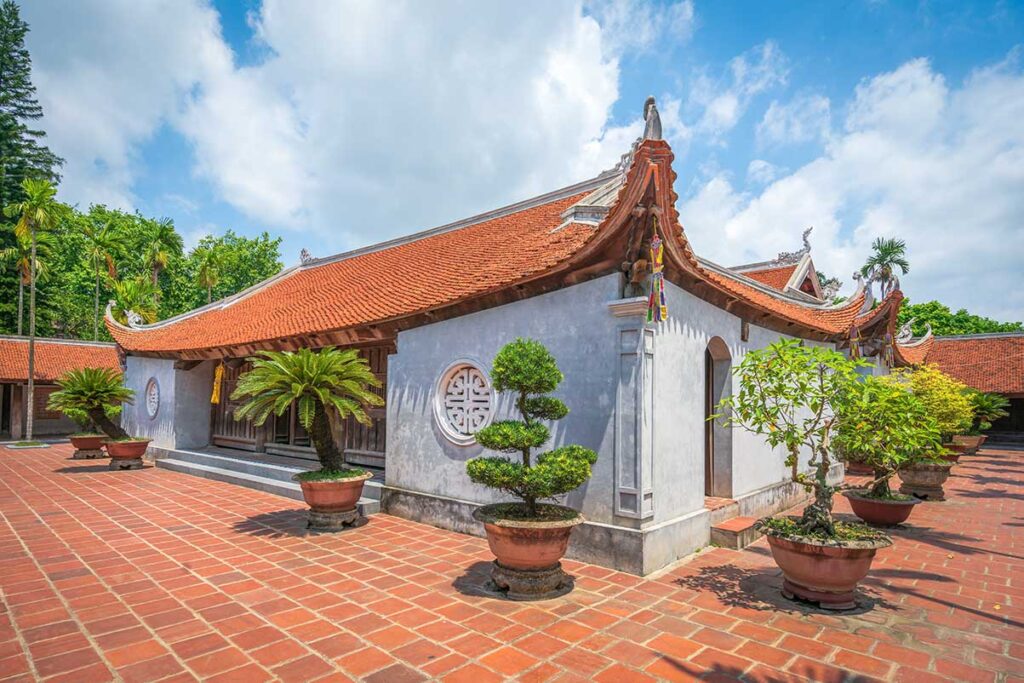
History of But Thap Pagoda
But Thap Pagoda was originally built in the 13th century but rose to prominence during a major restoration in the 17th century under the Le–Trinh dynasty. This transformation was led by Zen Master Chuyet Chuyet and his disciple Minh Hanh, with strong support from royal figures including Queen Dieu Vien and Princesses Le Thi Ngoc Duyen and Trinh Thi Ngoc Co, who are still honored with statues in the temple today.
In 1876, Emperor Tu Duc visited the site and gave it the name “But Thap,” meaning “Pen Tower,” inspired by the tall stone stupa that resembles a calligraphy brush. The architecture and layout reflect a strong Chinese influence, blending Zen, Pure Land, and Tantric Buddhist traditions—a rare example of syncretic religious design in Vietnam. Recognizing its cultural and historical value, the pagoda was designated a national relic in 1962 and elevated to a special national relic in 2013.
Highlights of visiting But Thap Pagoda
The pagoda complex stretches over 100 meters from front to back and includes ancient wooden halls, stone towers, a small bridge, and several rare national treasures. Below are the main highlights you can expect to see during your visit.
1. Thousand-Eyed, Thousand-Armed Avalokitesvara Statue
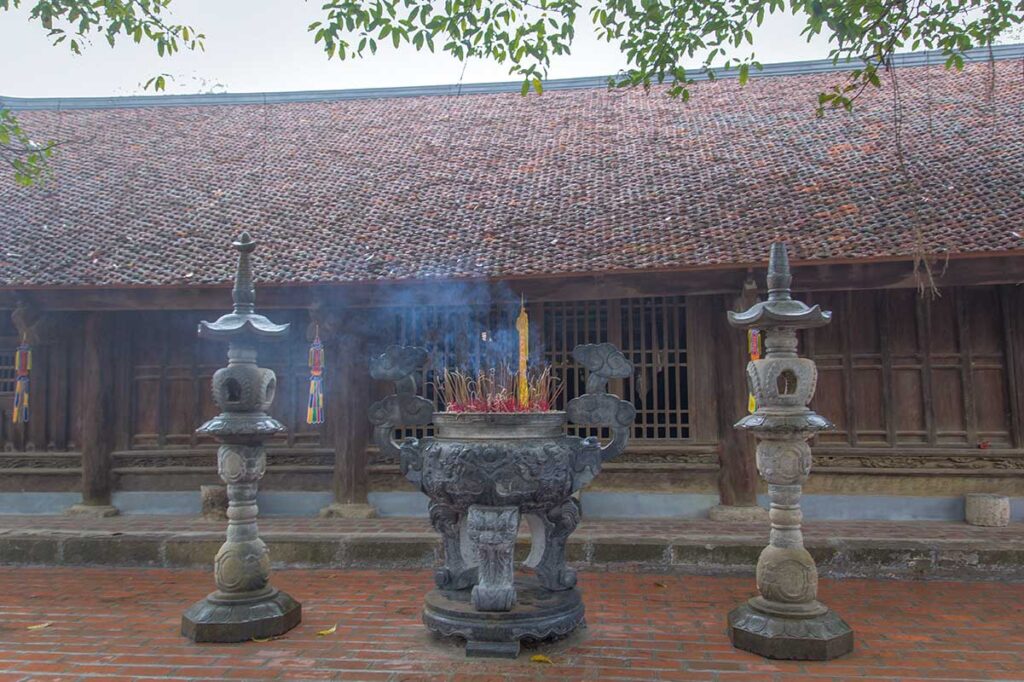
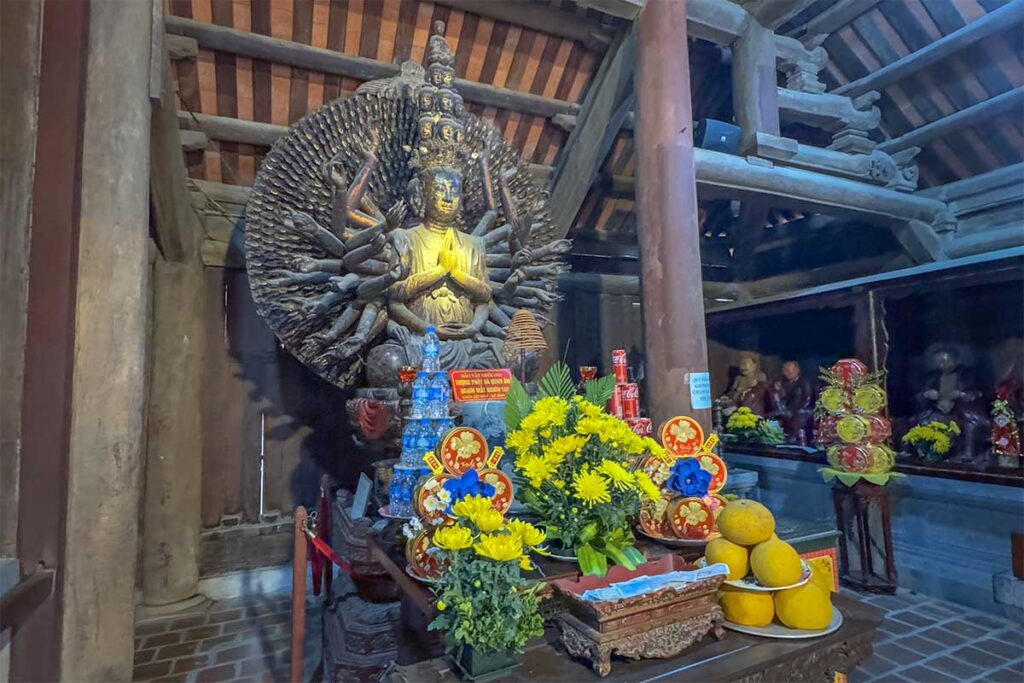
This is the most famous sculpture at But Thap Pagoda—and one of the most impressive wooden Buddhist statues in Vietnam. Carved in the 17th century, the statue stands 3.7 meters tall and features 46 large arms and nearly 1,000 small hands, each with an eye in the palm. It was officially recognized as a national treasure in 2012 and is a key reason many visitors come here.
2. Bao Nghiem Tower (Pen Stupa)
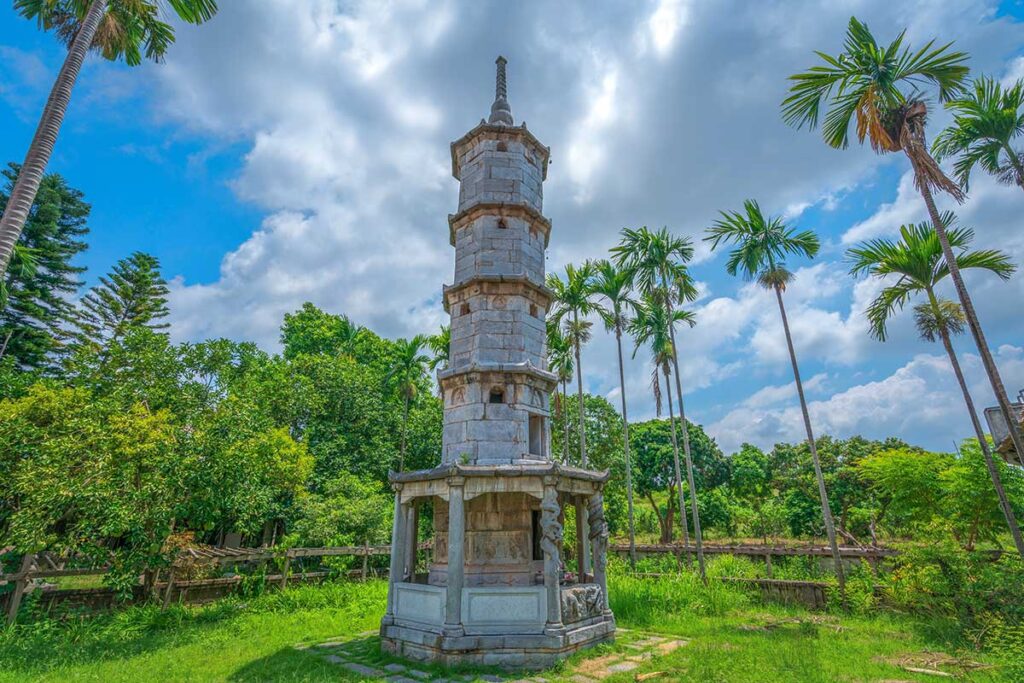
This stone tower stands 13 meters tall and has an octagonal shape that resembles a calligraphy brush pointing to the sky—hence the name “But Thap,” meaning “Pen Tower.” It was built to honor Zen master Chuyet Chuyet and contains fine carvings of Buddhist imagery. Each of the five levels is topped with small bells that gently ring in the wind.
3. Statues of the Buddhas of the Three Times
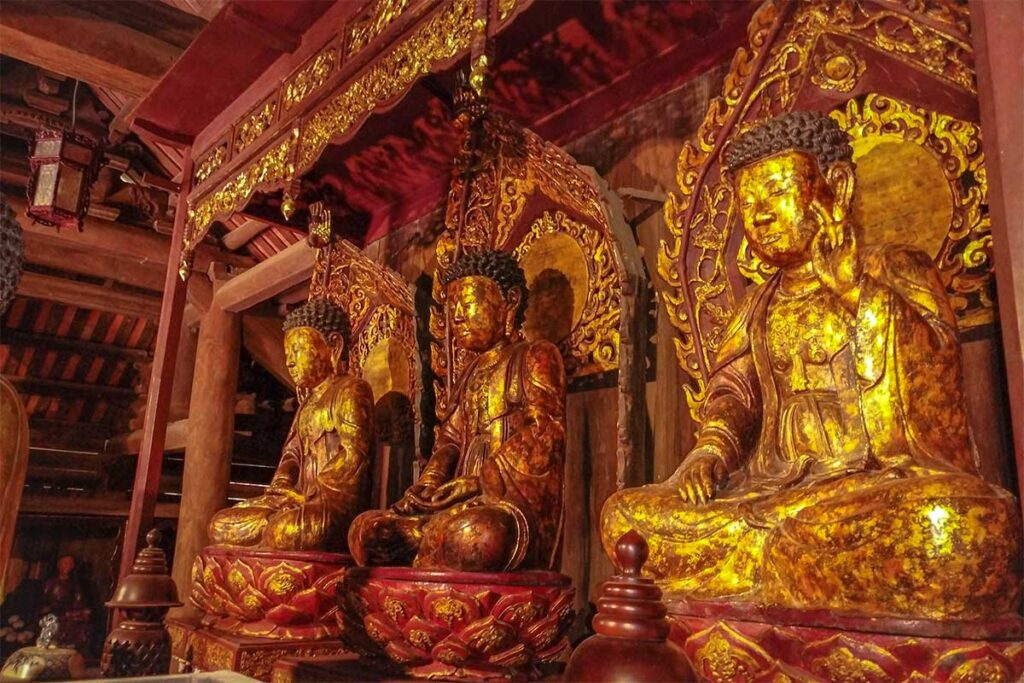
Inside the main hall, you’ll find a set of three large statues representing the Buddhas of the past (Amitabha), present (Shakyamuni), and future (Maitreya). These statues are known for their calm and noble expressions, and they’re considered fine examples of traditional Red River Delta Buddhist sculpture.
4. Nine-Story Wooden Lotus Tower
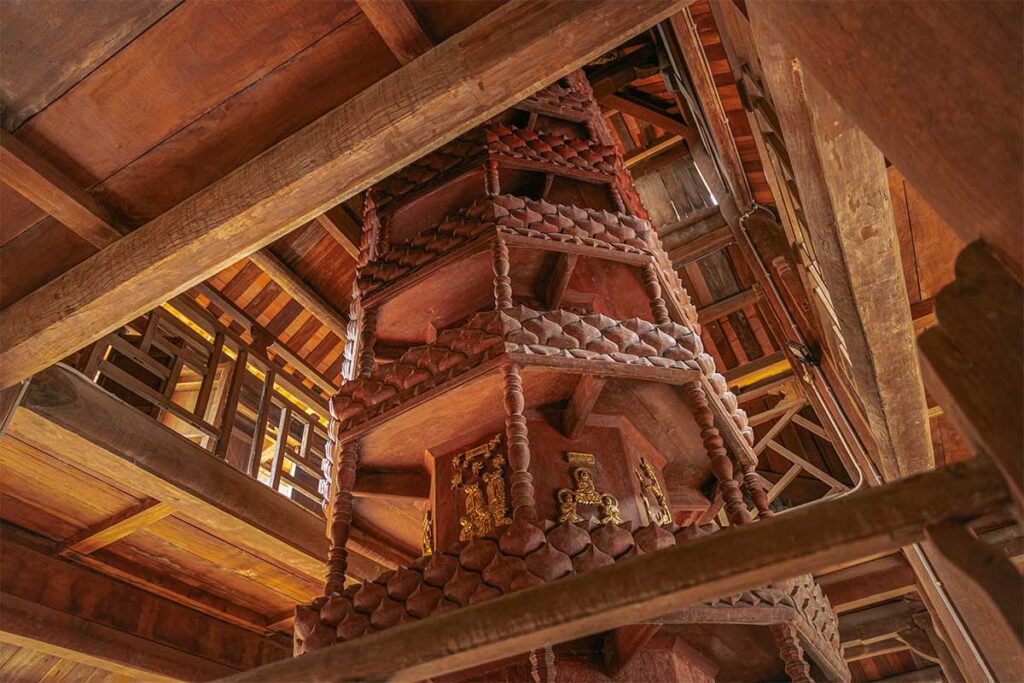
This striking octagonal tower is carved entirely from wood and stands 7.8 meters tall. Each of its nine layers is decorated with detailed carvings of Buddhas, monks, animals, and lotus patterns—symbolizing the steps on the path to enlightenment.
5. Upper Hall Altar and Carvings
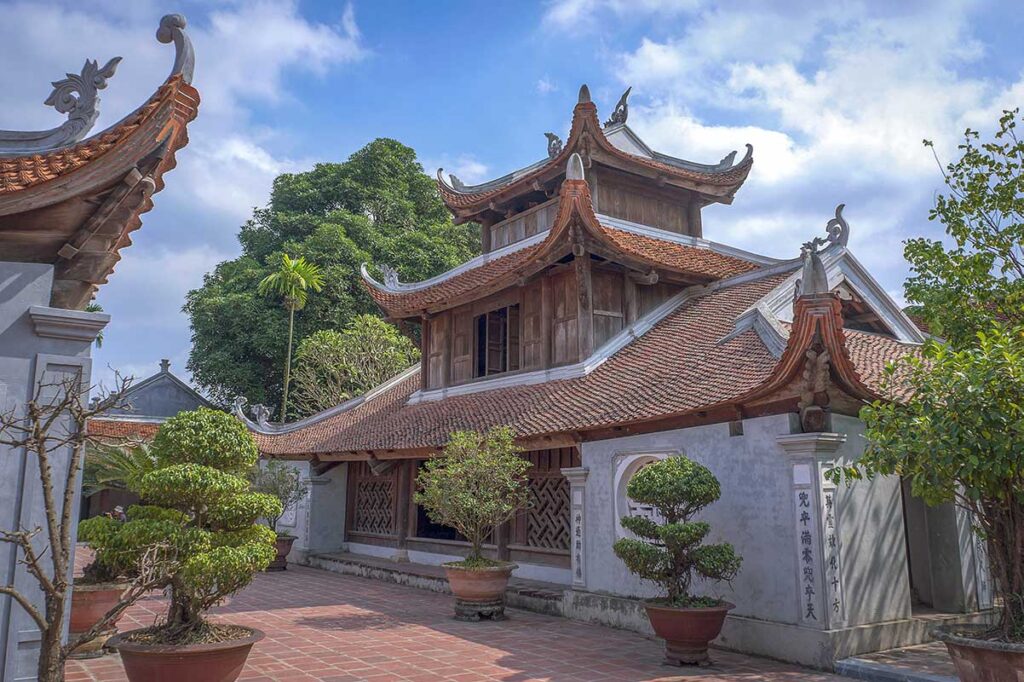
The upper hall contains one of the largest and most intricate wooden altars in the complex. It features detailed dragon carvings and decorative patterns that date back to the 17th century, showing the skill of the craftsmen who built it.
6. Stone and Wood Sculptures Throughout the Complex
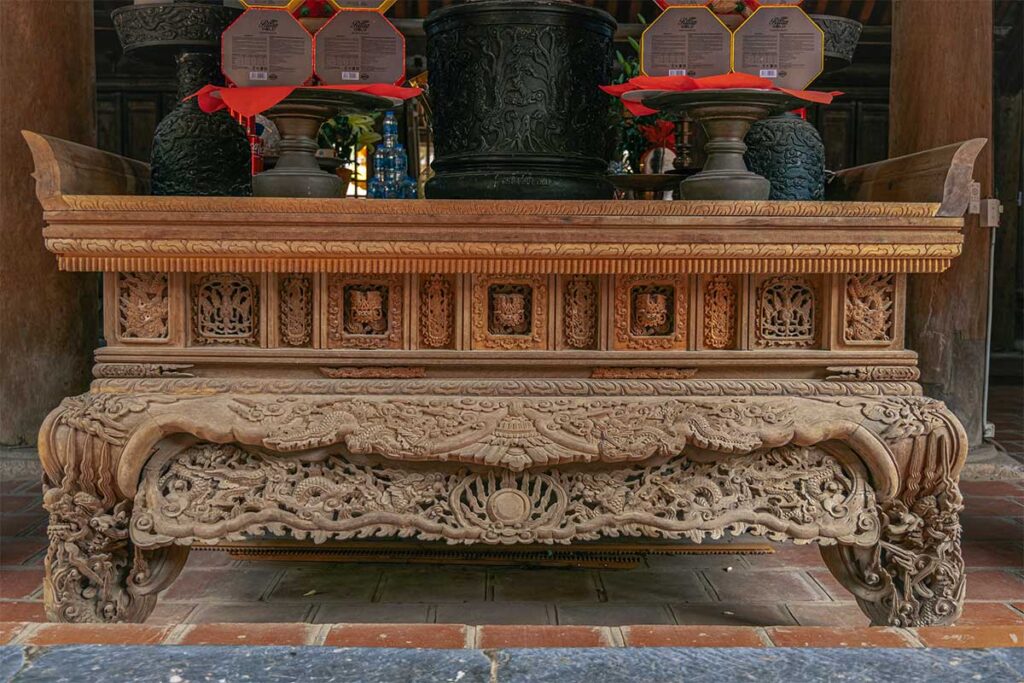
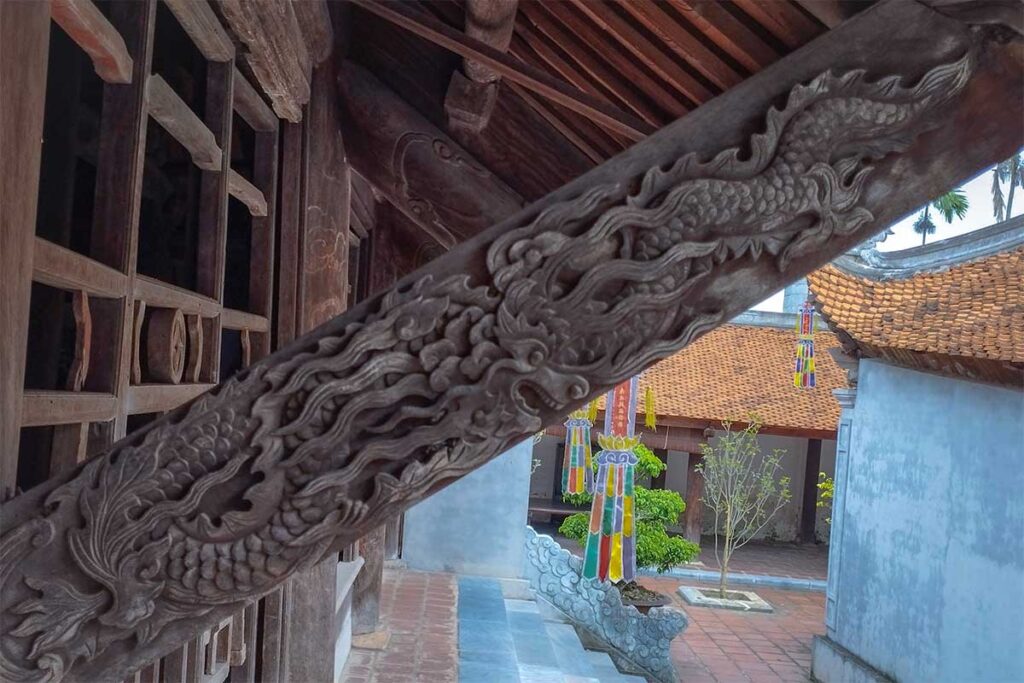
As you walk through the pagoda, you’ll see nearly 100 wooden statues in various poses, along with more than 50 stone carvings on walls and walkways. These include animals, floral designs, guardian figures, and other traditional Buddhist symbols.
7. Stone Bridge and Lotus Pond
Between the upper hall and one of the side buildings is a small stone bridge that crosses over a lotus pond.
It’s a peaceful spot and a nice place to stop and take in the calm atmosphere and harmony of the temple’s layout.
But Thap Pagoda Festival
The But Thap Pagoda Festival takes place each year on the 23rd and 24th day of the third lunar month (usually around April or May, depending on the year).
It includes traditional Buddhist ceremonies, offerings, and cultural performances held throughout the temple grounds. Most of the visitors are local families and pilgrims, which gives the festival a peaceful and authentic feel. It’s a good time to visit if you want to see the pagoda in active use and experience local traditions up close.
Location and How to Get There
Where is But Thap Pagoda?
But Thap Pagoda is located in But Thap Hamlet, Dinh To Commune, Thuan Thanh District, Bac Ninh Province.
It sits along the Duong River, about 30–35 km east of Hanoi’s Old Quarter—roughly a 45 to 60-minute drive, depending on traffic.
How to get to But Thap Pagoda from Hanoi
- Private car with driver – This is the easiest and most comfortable way to visit, especially if you want to combine But Thap with nearby places like Dong Ho Village or Dau Pagoda. It’s ideal for families, small groups, or anyone short on time.
- Motorbike – For experienced riders, the roads are mostly flat and manageable, making this a good option for a more independent and local experience. Be prepared for some rural traffic and navigation challenges.
- Public transport – Not recommended. There are no direct buses to the site, and the area has little English signage. It can be difficult to navigate without local language skills or help from a guide.
Nearby sights to combine with But Thap Pagoda
To make the trip more worthwhile, it’s a good idea to combine But Thap with other nearby cultural stops. The area around Thuan Thanh is full of traditional villages, old temples, and local craft heritage. Here are some easy add-ons for a fuller day trip:
Dau Pagoda
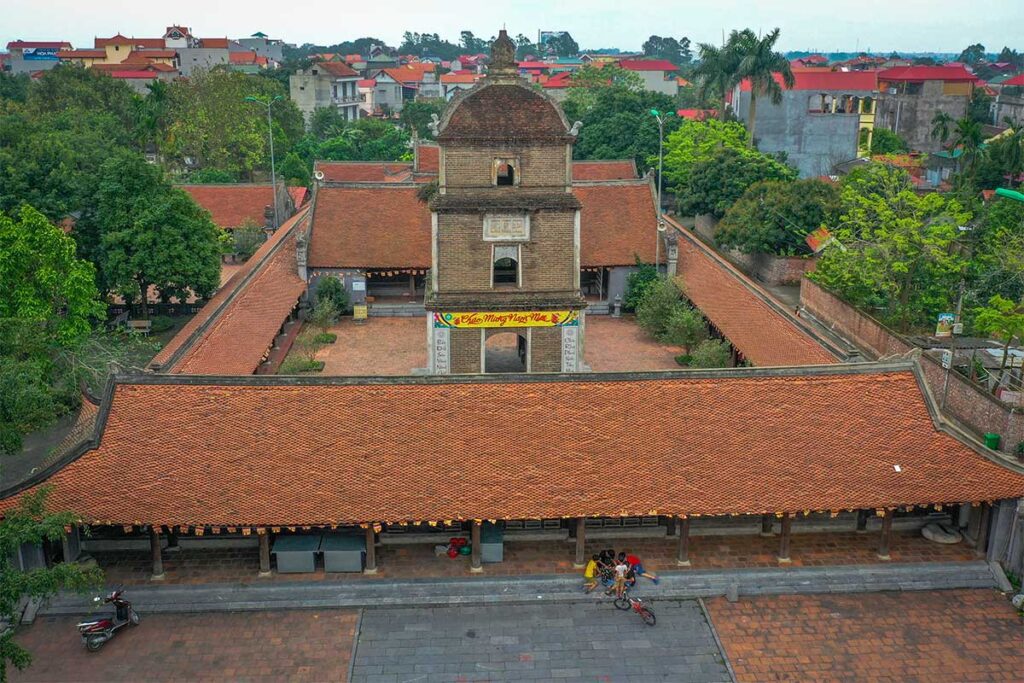
Located just 4 km from But Thap, Dau Pagoda is believed to be one of the oldest Buddhist temples in Vietnam.
It’s a peaceful spot with a long religious history and is often visited together with But Thap.
➤ Read our full guide to Dau Pagoda
Dong Ho Painting Village
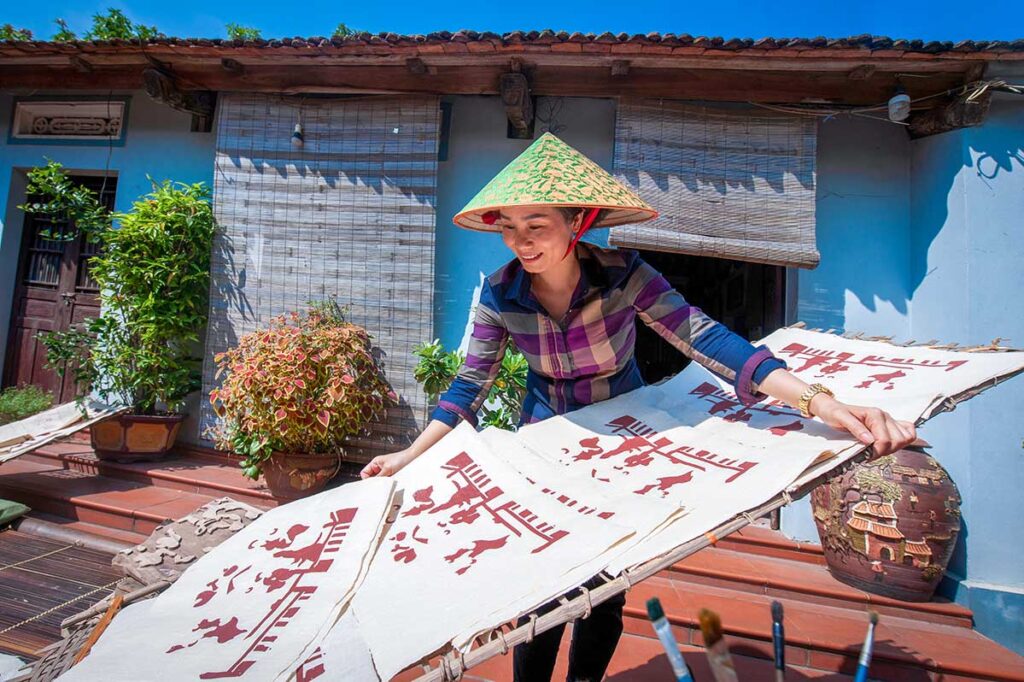
About 6 km north of the pagoda, Dong Ho is famous for its traditional woodblock paintings, made using natural dyes and handmade paper. You can visit local workshops and learn about this fading folk art tradition.
➤ Read our full guide to Dong Ho Painting Village
Nom Village and Pagoda
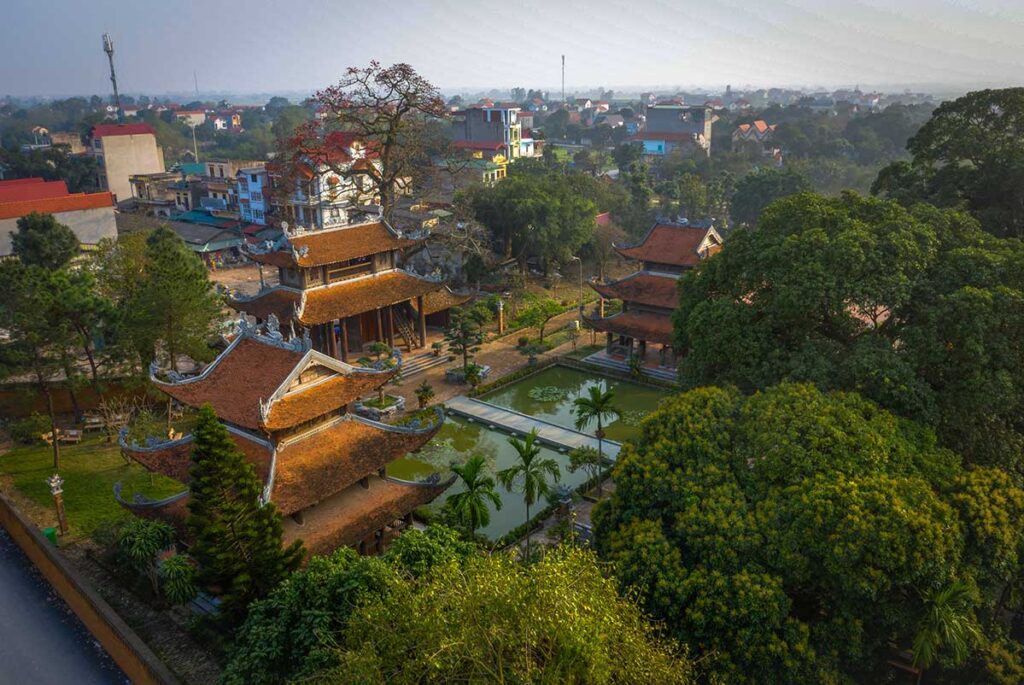
Roughly 10 km south lies Nom Village, a well-preserved rural village with a quiet pagoda, old-style homes, and a scenic pond. It’s a great place for a short walk, local photography, or just soaking in the peaceful countryside.
➤ Read our full guide to Nom Village and Pagoda
Bat Trang Pottery Village
Although a bit of a detour, Bat Trang lies about 16 km away and can easily be added if you’re traveling from Hanoi.
It’s one of Vietnam’s most famous pottery villages, with workshops, shops, and hands-on experiences.
➤ Read our full guide to Bat Trang Pottery Village
Local Markets and Small Temples
The area surrounding But Thap is dotted with lesser-known temples, village shrines, and local markets rarely visited by tourists. If you have a driver or guide, these hidden spots can turn your trip into a more personal and rewarding cultural experience.
You can also read our full guide about things to do in Bac Ninh.
Is But Thap Pagoda worth visiting?
If you’re interested in old temples, wooden sculpture, or Vietnamese history, But Thap Pagoda is absolutely worth a visit. The complex is peaceful, well-preserved, and home to some of the country’s most unique Buddhist artworks.
That said, if you’re short on time and haven’t yet explored Hanoi’s major temples and heritage sites, those are easier to reach and offer more variety in a single visit. But Thap is best seen as part of a cultural day trip that includes nearby places like Dong Ho Painting Village or Dau Pagoda—this way, the journey out to Bac Ninh feels more rewarding and well-rounded.
